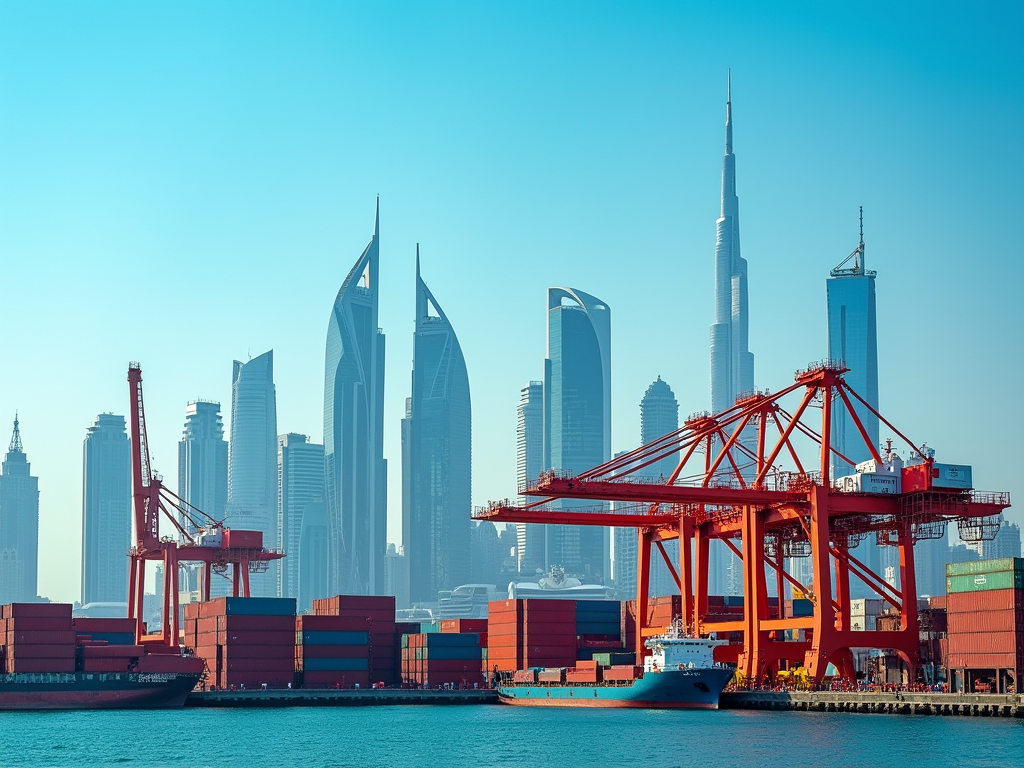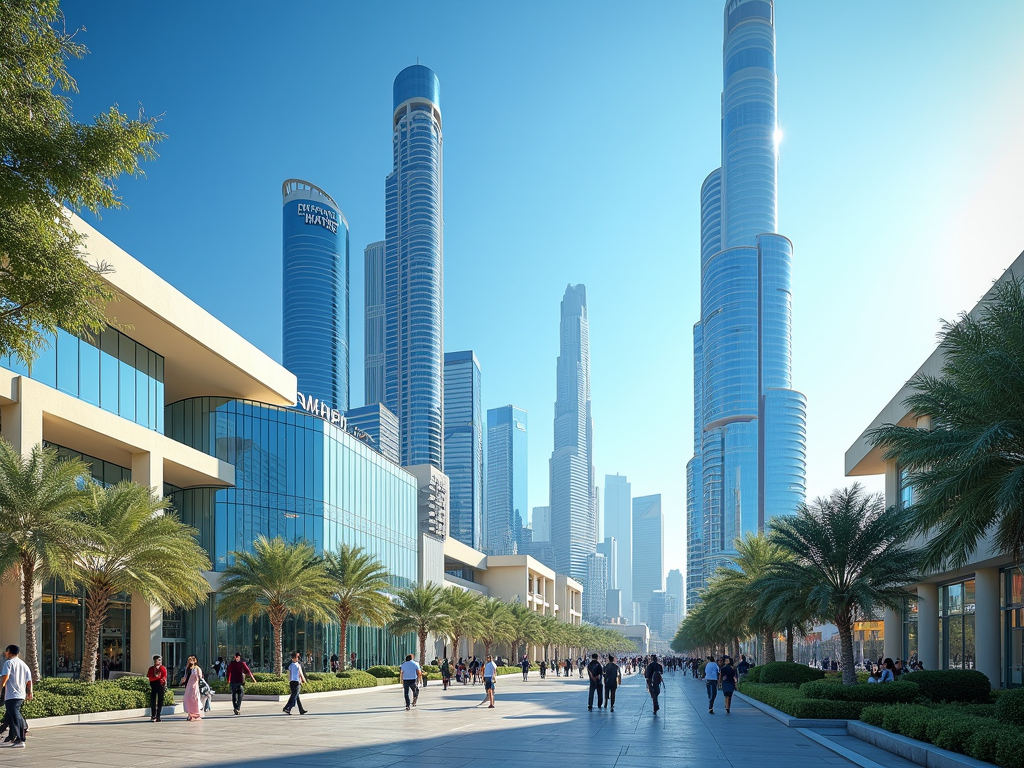Dubai’s economy is a remarkable example of resilience and adaptability in the face of global challenges. Despite the uncertainties stemming from geopolitical tensions, the COVID-19 pandemic, and fluctuating oil prices, Dubai has shown sustained growth. The emirate has emerged with a diversified economic model that effectively mitigates risk and promotes innovation. A strategic focus on tourism, finance, real estate, and technology has positioned Dubai as a global hub. This article explores the key factors that contribute to Dubai’s economic resilience, drawing on its strategic initiatives and forward-thinking policies.
The Diversification of the Economy

One of the cornerstones of Dubai’s economic growth is its commitment to diversification. Unlike many oil-dependent economies, Dubai has undertaken substantial measures to reduce its reliance on oil revenue. Key initiatives include:
- Tourism Development: Investing heavily in luxury hotels, entertainment venues, and global events such as the Dubai Expo.
- Financial Services: Establishing the Dubai International Financial Centre (DIFC) to attract global investment and banking institutions.
- Trade and Logistics: Utilizing its strategic geographic location to become a leading trade hub connecting East and West.
- Real Estate Investments: Encouraging foreign investment in property markets with attractive regulations and incentives.
- Innovation and Technology: Fostering a startup ecosystem that prioritizes tech advancements and smart city initiatives.
These initiatives not only enhance revenue streams but also create job opportunities and attract diverse talent. Such a multifaceted approach has strengthened Dubai’s economic infrastructure, making it less susceptible to global fluctuations.
Strategic Location and Infrastructure

Dubai’s strategic location is a significant factor propelling its economic growth. Positioned between Europe, Asia, and Africa, it serves as a global trade and logistics hub. The emirate boasts state-of-the-art infrastructure, including:
- World-class airports like Dubai International Airport (DXB), one of the busiest airports globally.
- Major seaports such as Jebel Ali Port, facilitating a high volume of trade.
- Advanced telecommunications and transportation networks, enhancing connectivity.
This infrastructure not only supports local businesses but also attracts multinational corporations seeking to establish regional headquarters. Furthermore, Dubai’s emphasis on connectivity and ease of doing business significantly enhances its attractiveness as an investment destination, driving economic activity even amidst global challenges.
During Global Uncertainties: Resilience and Recovery
Throughout periods of global uncertainty, Dubai has demonstrated remarkable resilience. The proactive measures taken during the COVID-19 pandemic illustrate how adaptable its economy can be. Key strategies include:
- Robust Health and Safety Protocols: Dubai implemented strict health regulations for tourists and businesses, prioritizing public safety while opening its economy.
- Digital Transformation: Accelerating digital initiatives, such as e-commerce and online services, to meet new consumer demand.
- Stimulus Packages: Introducing fiscal policies and stimulus packages to support struggling businesses and the workforce.
These steps allowed Dubai to bounce back quickly, resulting in a sharp recovery in tourism and economic activities. The agility shown in overcoming immediate challenges reflects the city’s long-term strategic planning.
A Business-Friendly Environment
Dubai’s economic growth is further supported by its business-friendly environment, characterized by several key elements. First, there are the various free zones, which offer incentives such as 100% foreign ownership, tax exemptions, and a simplified licensing process. Furthermore, Dubai’s regulatory framework is designed to facilitate investments, ensuring transparency and stability. Other contributing factors include:
- Low Tax Rates: Dubai is renowned for its tax policies, including the absence of income tax for individuals.
- Diverse Investment Opportunities: A wide range of sectors, from tech to healthcare, offering investors versatility.
- Strong Legal Framework: Protections for investors and clear regulations promote trust and security.
Such an environment encourages entrepreneurship and innovation, attracting both local and international entrepreneurs looking to establish businesses and contribute to the economy.
The Role of Visionary Leadership
The vision and leadership of Dubai’s ruling figures have been pivotal in driving the emirate’s economic policies. The government has embraced a long-term vision that focuses on sustainable growth and development. Initiatives such as Dubai Vision 2021 and the Dubai 2040 Urban Master Plan illustrate this commitment to future-proofing the economy. Key attributes of this leadership include:
- Investment in Human Capital: Prioritizing education and skill development to ensure a knowledgeable workforce.
- Cultural and Artistic Investments: Promoting arts and culture to elevate Dubai’s global status.
- Global Partnerships: Forming strategic alliances and partnerships to foster innovation and economic collaboration.
The foresight demonstrated by Dubai’s leaders not only shapes the economy but also fortifies its reputation as a global leader in innovation and development.
Conclusion
In summary, Dubai’s economy continues to thrive despite global challenges due to a diversified approach, strategic geographical advantages, a robust infrastructure, a business-friendly environment, and visionary leadership. By prioritizing innovation, sustainability, and adaptability, Dubai is setting a precedent for other economies aiming for resilience and growth. As the world faces uncertainties, Dubai’s proactive measures and strategic investments ensure its position as a dynamic economic powerhouse.
Frequently Asked Questions
1. What is the main contributor to Dubai’s economic growth?
The primary contributor to Dubai’s economic growth is its diversification efforts, reducing reliance on oil by expanding sectors like tourism, finance, and technology.
2. How does Dubai maintain a business-friendly environment?
Dubai maintains a business-friendly environment through incentives like low tax rates, free zones with 100% foreign ownership, and a streamlined regulatory framework.
3. What role does tourism play in Dubai’s economy?
Tourism is a significant driver of Dubai’s economy, attracting millions of visitors annually and generating revenue through hospitality, entertainment, and retail sectors.
4. How did Dubai respond to the COVID-19 pandemic economically?
Dubai responded to the pandemic by implementing strict health protocols, accelerating digital transformation, and introducing stimulus packages to support businesses and citizens.
5. What is Dubai’s long-term vision for its economy?
Dubai’s long-term vision focuses on sustainable growth through initiatives like Dubai Vision 2021 and the Dubai 2040 Urban Master Plan, emphasizing innovation and cultural development.


